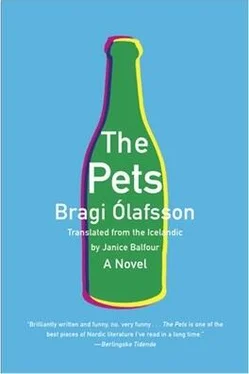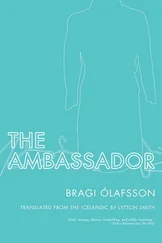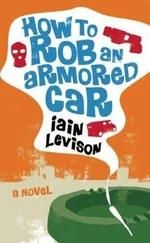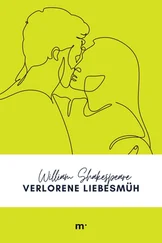Bragi Ólafsson - Pets
Здесь есть возможность читать онлайн «Bragi Ólafsson - Pets» весь текст электронной книги совершенно бесплатно (целиком полную версию без сокращений). В некоторых случаях можно слушать аудио, скачать через торрент в формате fb2 и присутствует краткое содержание. Год выпуска: 2008, Издательство: Open Letter, Жанр: Современная проза, на английском языке. Описание произведения, (предисловие) а так же отзывы посетителей доступны на портале библиотеки ЛибКат.
- Название:Pets
- Автор:
- Издательство:Open Letter
- Жанр:
- Год:2008
- ISBN:нет данных
- Рейтинг книги:5 / 5. Голосов: 1
-
Избранное:Добавить в избранное
- Отзывы:
-
Ваша оценка:
- 100
- 1
- 2
- 3
- 4
- 5
Pets: краткое содержание, описание и аннотация
Предлагаем к чтению аннотацию, описание, краткое содержание или предисловие (зависит от того, что написал сам автор книги «Pets»). Если вы не нашли необходимую информацию о книге — напишите в комментариях, мы постараемся отыскать её.
Pets — читать онлайн бесплатно полную книгу (весь текст) целиком
Ниже представлен текст книги, разбитый по страницам. Система сохранения места последней прочитанной страницы, позволяет с удобством читать онлайн бесплатно книгу «Pets», без необходимости каждый раз заново искать на чём Вы остановились. Поставьте закладку, и сможете в любой момент перейти на страницу, на которой закончили чтение.
Интервал:
Закладка:
Bragi Ólafsson
Pets
Some enchanted evening
You may see a stranger,
You may see a stranger
Across a crowded room;
— Oscar Hammerstein IIPart One. The Lottery Prize
1
Someone, wearing an anorak, knocked on my door at lunchtime. My neighbor Tomas is out pottering in the garden and hears me when I open the garden gate. He welcomes me home from my trip abroad and tells me that some fellow — he couldn’t say how old he was — was hanging around outside my front door around twelve-thirty.
“He was wearing some kind of blue nylon anorak with a hood,” he says. “I couldn’t see his face properly because of his hood.”
Tomas himself is wearing an anorak, and has a knitted cap on his head, as well as a scarf with the colors of some English football team around his neck.
“Maybe he was at the wrong house,” I say.
“I don’t think so,” Tomas answers. “Somehow I got the feeling that he knew where he was going. He had a plastic bag in his hand, that I think he put down in the snow while he waited to see if you were at home. He knocked for a good five or ten minutes.”
At this moment I can’t think of anyone who needs to talk to me today — Tuesday, at lunchtime, when I’m not even in the country — but when Tomas mentions the plastic bag, for one second I’m afraid that it could have been Sigurvin, an old work mate, and that the bag contained recently purchased warm beer, though it would have probably cooled down a lot in February’s frost. This fellow Sigurvin was supposed to have stopped drinking, but the memory of him drunk was so vivid and terrifying that it still bothered me.
“You didn’t notice if he took unusually large strides?” I ask.
Tomas says that he hadn’t really paid him much attention, just noticed how long he stayed banging at the door. But, come to think of it, he had also seen the man peer through the kitchen window, as if he expected me to be hiding in there.
The fact that the fellow peered through the kitchen window when it was obvious that no one was at home made me think of another old acquaintance. However, as far as I know, it’s impossible, or at least very unlikely, that he is here in Reykjavik.
“There was something about him that gave me the feeling he was in need of shelter,” Tomas says, and I’m not sure if he is joking. “Then I noticed that he was fiddling with the name plate on the door. It looked as if he was polishing it. Probably just wiping the snow off so that he could read the name properly.”
These fine copper or brass name plates give a sense of endurance and eternity. Some old atmosphere lingers from bygone days. My name plate is only two years old and yet it is so weather-beaten that one imagines its owner is old or neither old nor young; it’s almost like a grave stone. The main difference being that there are no dates or title on it, like “managing director” or “ship owner”—as one sees in cemeteries — and no wish that the owner rest in peace, in this instance inside his own front door.
I ask Tomas if he spoke to the man at all. He says that he had been thinking of telling him that I was abroad, but had decided not to; not that he was hinting that this acquaintance of mine was by any means dubious, but one could never be sure if such men would take advantage of the fact that the flat was empty.
“ Such men?” I repeat. “What do you mean by such ?”
“Oh, I just meant, you know, ordinary men.”
“So he was only an ordinary man?” I say and emphasize the word ordinary so it is quite obvious that I am joking.
“I suppose so,” Tomas says. “I didn’t see anything peculiar about him really, come to think of it.”
“By the way, how did you know that I was abroad?” I ask with a smile. Tomas smiles back and says that Bella, the old lady who lives in the flat above me, had asked him to keep an eye on the house last weekend while she was away visiting her sister in Akranes because she had promised, he said, to look after my flat while I was in America. Then she had started talking about me, said she couldn’t have been luckier with her neighbor, that it made such a difference sharing a house with people one could trust. I correct Tomas: I had only gone to London, Bella must have misunderstood me.
“So you didn’t see his face?” I ask, trying to steer the conversation back to the original subject matter and put an end to it. Standing out here in the frost is killing me.
“No, I didn’t,” he answers, seeming to realize that I want to get indoors. “He was too well hidden inside the hood.”
I had told Bella before I left that I would be away for two weeks — though I don’t remember telling her where I was going — and she promised (without me asking) to keep an eye on the flat in the meantime. She even offered to water my plants and insisted on giving me some cuttings when I told her that I didn’t have any in my flat. I declined her offer politely.
At twelve-thirty I was probably moving slowly down the escalator in the direction of the duty-free store or going through the customs with my suitcases and bags. At the very moment when this fellow in the anorak decided that he had knocked long enough — was maybe even trying to peer through the kitchen window — I was probably getting on the bus outside the airport. Perhaps I had sat down beside Greta, the woman I got to know on the plane just before we landed and on the bus to Reykjavik. I realize that I am forgetting her features little by little. I can’t form a clear image of her, despite the fact that I first met her fifteen years ago, saw her occasionally after that, and saw her again today on the flight. It’s strange how quickly faces fade in one’s memory. The only things I can remember clearly are her wavy, fair hair, her full lips, and her thin arms — they poked out of the wide sleeves of her T-shirt like two drain pipes. I’ll recall small details and particular facial expressions of hers better this evening when we meet. That is, if she calls.
She said she would call. And I’m feeling really guilty because I hope she will. I know Vigdis — my girlfriend or lover (depending on how you look at it) — will call this evening; she said she would give me a ring when I got home.
Before I go in with my bags, Tomas repeats something about being sure that the fellow in the anorak will come back. I tell him that I have an idea of who he is, though in reality I haven’t a clue. I have discounted the two men I thought of first and there is no way that it could have been Saebjorn or Jaime. They weren’t going to come round until later tonight. Besides, Tomas’s description doesn’t fit either of them at all.
There is something about my neighbor’s face that reminds me of my fellow passenger on the plane, the linguist Armann Valur. Probably the lower half of his face; his mouth and in particular his nose. It’s as if Tomas’s nose has no definite shape or form, almost as if it’s some tiny, useless blob. The grammarian’s nose was similar: bent, though it wasn’t broken, and the tip of it looked as if it had been melted or squashed under something, I don’t dare to imagine what.
When I’ve said goodbye to Tomas and gone indoors, it suddenly strikes me that it was strange he should be out in the garden at lunchtime, when the man in the anorak knocked at my door, and now again around five when I come home. It’s February and everything is covered in snow; what’s a man in his sixties doing out in the garden in such weather, twice on the same day? And yet sometimes it’s as if people and objects are put in a certain place on earth just to suit the whims of some eccentric; as if someone up above is amusing himself by arranging us as he likes, contrary to all common sense. I have sometimes felt as if I’ve been picked up by the scruff of my neck and moved, in different situations, either to rescue me from some calamity or — which I suspect is more often the case — to deliberately get me into trouble.
Читать дальшеИнтервал:
Закладка:
Похожие книги на «Pets»
Представляем Вашему вниманию похожие книги на «Pets» списком для выбора. Мы отобрали схожую по названию и смыслу литературу в надежде предоставить читателям больше вариантов отыскать новые, интересные, ещё непрочитанные произведения.
Обсуждение, отзывы о книге «Pets» и просто собственные мнения читателей. Оставьте ваши комментарии, напишите, что Вы думаете о произведении, его смысле или главных героях. Укажите что конкретно понравилось, а что нет, и почему Вы так считаете.
